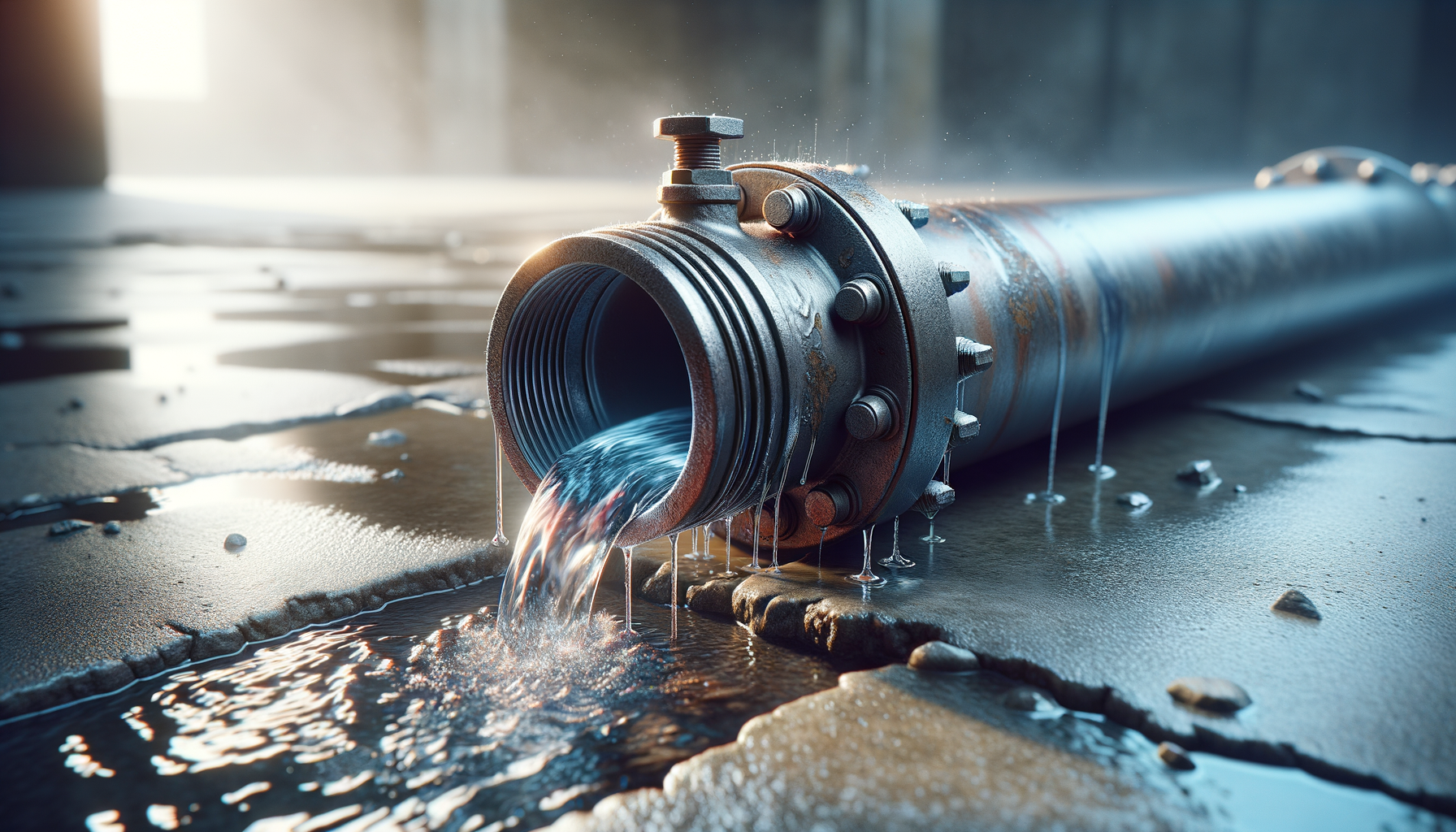Understanding Slab Leaks
What is a Slab Leak?
A slab leak happens when water pipes under the concrete foundation of a home start leaking. These pipes might bring water into your house or take it away. Because the leaks are under thick concrete, they’re hard to see. So, you need to look carefully and sometimes do a bit of detective work to find them.
Causes of Slab Leaks
Pipe Corrosion
Pipes can rust or wear down due to old age or the quality of the water running through them. When this happens, they can start to leak.
Poor Construction
Sometimes, slab leaks are because the pipes weren’t put in right or the materials used were not good enough. Badly installed or cheap pipes are more likely to break and leak.
Ground Shifts
Natural movements like minor earthquakes or the ground settling can twist or break the pipes under the foundation, causing leaks.
Signs You Might Have a Slab Leak
Unexplained Water Bills
If your water bill goes way up without you using more water, it might mean there’s a hidden slab leak.
Damp Spots on Floors
If you see wet spots or feel warmth on the floor where there shouldn’t be any, it could mean a slab leak.
Low Water Pressure
If your water pressure suddenly is much weaker, it might be because of a big slab leak.
Mold and Mildew
If you notice musty smells or find mold in your basement, it could be from extra moisture caused by a slab leak.
Steps to Take When You Suspect a Slab Leak
Initial Assessment
Spray Test
You can spray water around the area you think has a leak to see if it’s just a surface problem. This can help you figure out if the issue is simpler than a slab leak.
Water Meter Test
Turn off all the water in your home and check the water meter. If it’s still moving, something is leaking somewhere.
Moisture Check
You can use a moisture meter to see if there’s lots of moisture in certain spots. High readings might mean a slab leak.
Professional Help
When to Call a Plumber
If your tests make you think you have a slab leak, it’s time to call a plumber. They have special tools and know what to do.
What to Expect
The plumber will check your home using tools like special cameras or sound detectors to find the leak. They will then tell you the best way to fix it.
Cost Estimates
Finding and fixing a slab leak can be costly. The initial check-up might cost between $150 and $400. Fixing it can cost a lot more, usually between $2,000 and $6,000, depending on how bad it is.
Preventative Measures
Regular Maintenance
Routine Inspections
Get a professional to check your plumbing regularly. Finding small problems early can stop them from becoming big, costly ones.
Water Pressure Monitoring
Keep your home’s water pressure at a safe level. High pressure can damage pipes and cause leaks.
Upgrading Plumbing
High-quality Materials
Use good, strong materials for your plumbing to avoid leaks and make sure they last longer.
Modern Techniques
Newer methods like trenchless pipe repair can fix pipes without making big messes. They are often quicker and less disruptive too.
Common Questions About Slab Leaks
How long does it take to fix a slab leak?
It depends. Some fixes are fast and take a few hours, while others could take several days.
Can homeowners insurance cover slab leak repair?
Sometimes, yes. If the leak causes water damage, your insurance might cover it. Check with your insurance company to know for sure.
What happens if a slab leak is ignored?
Ignoring a slab leak can lead to bad water damage, problems with your home’s foundation, mold growth, and very high repair costs later on.
Are there eco-friendly repair options available?
Yes. Some methods, like epoxy pipe lining, are better for the environment and less intrusive than traditional repairs.
Conclusion
Finding problems early and keeping up with maintenance are key to avoiding the hassle and cost of a slab leak. Keep an eye on your home’s foundation and plumbing. By checking your plumbing regularly, you can catch problems early and save money. Be proactive to protect your home!


Leave a Reply